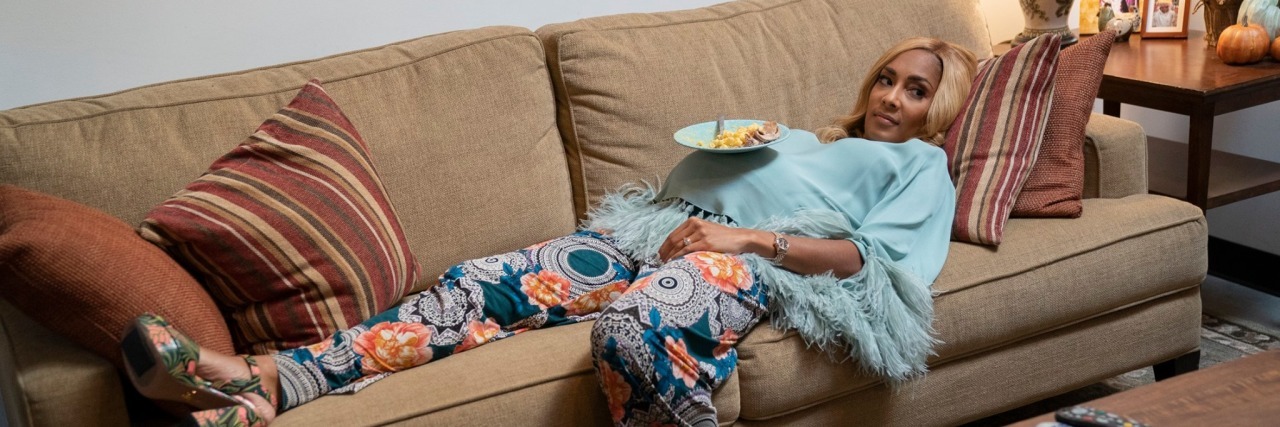In an Easy-to-Miss Moment, 'Insecure' Made an Important Point About Black Women and Pain
Editor's Note
If you’re struggling with self-judgment, check out The Mighty’s No Shame group. It’s a safe space to share how you’re feeling with other people who get it.
Though Issa Rae’s HBO show “Insecure” is a comedy, it’s known for addressing important issues like the oppression of Black people, women and LBGTQ+ folks. This week’s episode (season 4, episode 4: “Lowkey Losin’ It“) was no different.
In the episode, Issa and friends are visiting Tiffany at home following the birth of her baby. During the usual girlfriend chatter, Tiffany takes a dark turn and shares how she hates the “fakery” of motherhood. She explains that moms are faking about feeling great and forcing themselves to look good for the sake of others. Tiffany then shares how in the hospital she told her doctors she felt faint, but they ignored her concerns. It wasn’t until her husband stepped in and advocated for her that the doctors took her symptoms seriously. Turns out, Tiffany was feeling faint because she had a blood clot. Tiffany could have died from this medical complication.
Other relevant stories:
• Autism and Epilepsy
• Can Epilepsy Come Back After Years
• Does Epilepsy Go Away
Sadly, this is not just a scene in a comedy episode. It plays out over and over again in the lives of Black women. Black women of color die in childbirth at alarmingly disproportionate rates to their white counterparts, and as recently as 2016, one survey found that half of medical trainees held at least one false believe about Black folks, including, “black people’s skin is thicker than white people’s.”
In an article entitled, “Why middle-class black women dread the doctor’s office,” Yasmin Anwar wrote:
One is the tendency to blame black women’s health problems on weight. A case that stands out to me was a woman who was 35 at the time I met her, who had suffered from severe knee pain since she was 19 or 20. As the pain worsened, she kept going to the doctor, who told her she just needed to lose weight. She would get X-rays, but not more sophisticated diagnostic workups. Finally, she found a doctor who ordered an MRI. Once the results were in, she was called immediately to the hospital and told she had two tumors in her knee. They had been there all this time. They were able to remove the tumors and save her leg, but if they had waited any longer, they would have had to amputate her leg.
In my own life, I can recall examples of medical bias. After having seizures at the state Capitol and being taken to the hospital by ambulance, I was treated like a perpetrator rather than a medical patient. I was wheeled to the side and basically ignored. Shortly after my husband arrived, he told them he did not need them to do anything, that he usually just put me to bed himself after I had a seizure. He asked for me to be discharged. Immediately a neurologist arrived to examine me and to interview me and my husband about my history of seizures, treatments and medications. He assured my husband that I needed treatment and that he planned to change my medication. He also asked me if I was willing to change neurologists because he wanted to make certain I was receiving the robust standard of care necessary to control seizures.
Meeting with the new neurologist was a breath of fresh air. She listened, reflected, questioned and shared her proposed plan of treatment. She proposed a plan to transition me off my old medications and onto to new medications.
I appreciate my new treatment plan and providers. Yet, somehow I believe that having seizures that day in front of state troopers and others at the state Capitol strengthened my claim and gave this Black woman more credibility. Thankfully, my husband was there in the emergency room to advocate for me and support me. It’s frightening to think that as a Black woman, I might be dead before I am believed and given the correct medical treatment. I appreciate shows like “Insecure” bringing attention to this important issue. Black women deserve to be believed.
Header image via “Insecure” Facebook page

